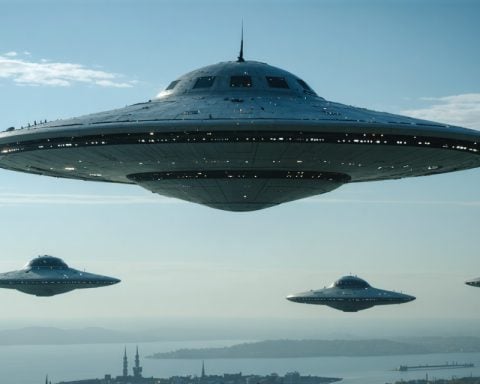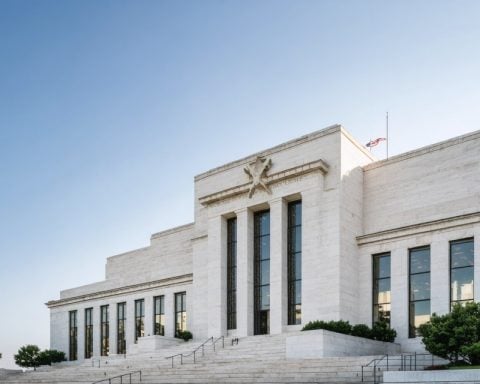Unveiling Jimmy Carter’s Alien Encounter
Former President Jimmy Carter is no stranger to the topic of unidentified flying objects. In fact, he has openly shared his own experience observing a UFO during 1969 while he was in Leary, Georgia. According to Carter, he and several others witnessed a bright light in the sky that changed colors and hovered. Intrigued, he described the object as significant as it moved in unpredictable patterns before it eventually disappeared.
Despite this encounter, Carter maintains a skeptical view regarding the existence of extraterrestrial beings on Earth. He emphasizes that while he experienced an unexplained phenomenon, it does not necessarily confirm that aliens exist or have visited our planet. In his discussions, he has stated that he believes the scientific community has not found concrete evidence of alien life.
Carter’s perspective on UFOs reflects a broader public fascination with unexplained aerial phenomena, but his attitude reminds us to balance curiosity with skepticism. While he acknowledges the mystery that surrounds UFO sightings, he encourages a grounded approach to understanding such incidents.
As the conversation around UFOs continues to evolve, Carter’s story serves as a reminder of the allure and enigma of the skies above us. How many others share similar experiences without uncovering the truth?
Jimmy Carter’s UFO Encounter: Insights and Skepticism Unveiled
Former President Jimmy Carter’s encounter with an unidentified flying object (UFO) in 1969 has sparked intriguing conversations about the nature of such phenomena. Carter’s experience, although anecdotal, taps into a larger dialogue surrounding the existence of unexplained aerial phenomena and the public’s growing curiosity.
The Encounter and Its Description
Carter recounted witnessing a bright, color-changing light that hovered and moved unpredictably while he was in Leary, Georgia. This observation, shared with others, left a lasting impression on him. The event highlights the enduring mystery of UFOs and the varied interpretations of such sightings.
Skepticism Among Enthusiasm
Despite the compelling nature of his encounter, Carter remains skeptical about the existence of extraterrestrial life. He has consistently said that while he finds the phenomenon intriguing, it does not automatically imply that aliens have visited Earth. This cautious stance is echoed by many scientists who argue that extraordinary claims require extraordinary evidence.
Current Trends in UFO Research
As interest in UFOs grows, particularly with recent government disclosures about unidentified aerial phenomena (UAPs), there is a significant shift in the scientific community’s approach to these sightings. Public interest has surged, driven by recent reports and revealing documents. Key trends include:
– Increased government transparency: Following years of secrecy, various governments, including the U.S., have started to release classified documents related to UFO sightings, prompting further investigation.
– Scientific examination: Researchers are pushing for a more structured scientific inquiry into UFOs and UAPs. Initiatives such as the Pentagon’s UAP Task Force are tasked with evaluating reports from military personnel and civilians.
– Public engagement: The public’s curiosity surrounding UFOs is leading to increased community discussions, forums, and even documentaries aimed at exploring personal experiences and scientific possibilities.
Pros and Cons of UFO Investigations
Pros:
– Scientific advancement: Investigation of UFO phenomena can lead to advancements in aviation technology and enhance our understanding of atmospheric phenomena.
– Public engagement: Increased interest can encourage more individuals to report sightings, potentially leading to significant findings.
Cons:
– Misinformation spread: The lack of concrete evidence can result in hoaxes and exaggerated claims that overshadow serious inquiry.
– Skepticism: Continuous lack of verifiable evidence may lead to public disillusionment regarding genuine scientific pursuits.
What’s Next: The Future of UFO Studies
Looking ahead, many experts predict that the desire for transparency will continue to shape UFO studies. Enhanced technologies, such as drone surveillance and improved sensors, may facilitate further exploration into unexplained aerial phenomena. Moreover, collaboration between governments and scientific institutions is essential to foster a more credible investigation framework.
Conclusion
Jimmy Carter’s UFO experience is emblematic of a larger, ongoing conversation about the unknowns of our universe. While his personal story contributes to the allure of UFOs, it also serves as a cautionary reminder about the importance of skepticism in the quest for truth. As society navigates through this complex field of inquiry, the balance between curiosity and critical analysis will be crucial.
For more information on UFOs and ongoing research, visit NASA.


















